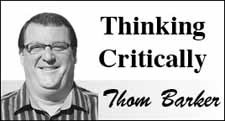Growing up, I always took great pride in the fact that Dr. Frederick Banting was Canadian. I know, pride for others' accomplishments is a little misplaced, not to mention one of the seven deadlies.
Nevertheless, developing a treatment for the previously fatal disease of diabetes was a great gift to the world and one that deeply affected me personally. Had Banting and his assistant, graduate student Charles Best, not isolated insulin and figured out how to use it to manage the ailment in people, I would not have a sister right now.
It is one of the great discoveries of all time, one that earned Banting the Nobel Prize in 1923 and continues even to this day to be a great source of collective Canadian pride.
The mythology around it is a little murky, however. I did not find out until much later, for example, that Best did not share in the Nobel prize. That honour went to John James Rickard Macleod, director of the physiology lab at the University of Toronto, whose contribution to the enterprise was little more than providing the lab space in which Banting and Best worked.
I also did not realize until much later that Banting had not technically "discovered" insulin himself. This is not to take anything away from Banting's research, scientific progress is almost always incremental, but Banting went looking for insulin based on research by Edward Albert Sharpey-Schafer (discoverer of adrenaline) and others.
It was Schafer who theorized diabetes resulted from a lack of the protein hormone secreted by the islets of Langerhan and dubbed the substance insulin.
Still, that does not negate the sense of collective pride that this contribution to medicine was a Canadian one.
Last week, I experienced a similar wave of pride when I read the results of the first human trials of a potential HIV vaccine developed by Dr. Chil-Yong Kang out of the University of Western Ontario in London, Ontario.
Of course the world is much different today than it was in the early 20th century when Banting and Best isolated and refined insulin in a cramped corner of a dingy lab in Toronto. Pharmaceuticals are big, big business and the research into this new vaccine is being underwritten by Sumagen Company, a South Korean biotech firm that holds the exclusive licence for the drug's development and commercialization.
Again, not to take anything away Kang's research. An HIV vaccine is a big, big deal and this one passed the Phase I clinical trials with flying colours.
There is still a lot of work left to be done, but perhaps future generations of Canadians will be able to look back on the early part of this century and laud the achievements of Dr. Kang the same way we currently cherish Dr. Banting.




